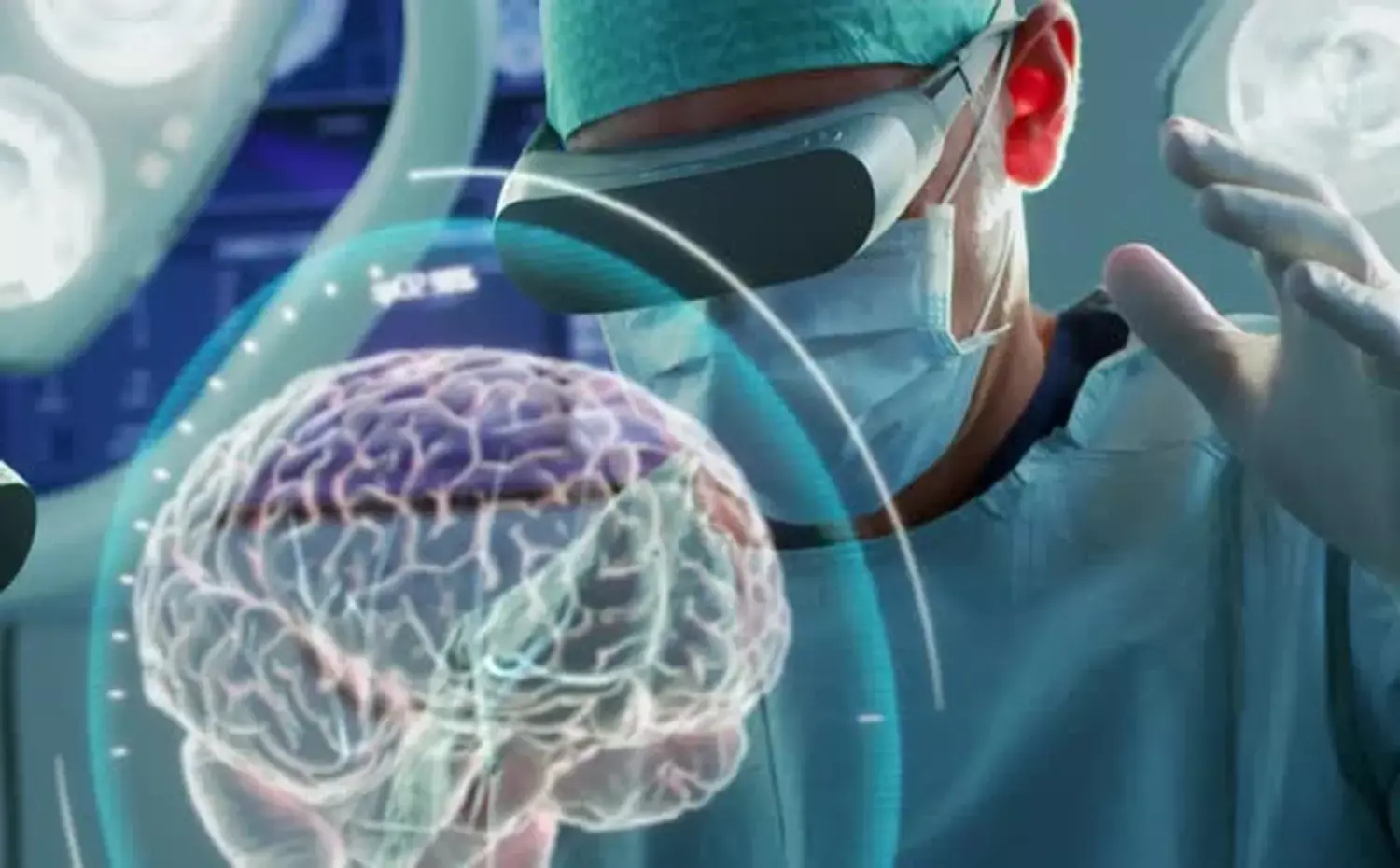- Home
- Medical news & Guidelines
- Anesthesiology
- Cardiology and CTVS
- Critical Care
- Dentistry
- Dermatology
- Diabetes and Endocrinology
- ENT
- Gastroenterology
- Medicine
- Nephrology
- Neurology
- Obstretics-Gynaecology
- Oncology
- Ophthalmology
- Orthopaedics
- Pediatrics-Neonatology
- Psychiatry
- Pulmonology
- Radiology
- Surgery
- Urology
- Laboratory Medicine
- Diet
- Nursing
- Paramedical
- Physiotherapy
- Health news
- Fact Check
- Bone Health Fact Check
- Brain Health Fact Check
- Cancer Related Fact Check
- Child Care Fact Check
- Dental and oral health fact check
- Diabetes and metabolic health fact check
- Diet and Nutrition Fact Check
- Eye and ENT Care Fact Check
- Fitness fact check
- Gut health fact check
- Heart health fact check
- Kidney health fact check
- Medical education fact check
- Men's health fact check
- Respiratory fact check
- Skin and hair care fact check
- Vaccine and Immunization fact check
- Women's health fact check
- AYUSH
- State News
- Andaman and Nicobar Islands
- Andhra Pradesh
- Arunachal Pradesh
- Assam
- Bihar
- Chandigarh
- Chattisgarh
- Dadra and Nagar Haveli
- Daman and Diu
- Delhi
- Goa
- Gujarat
- Haryana
- Himachal Pradesh
- Jammu & Kashmir
- Jharkhand
- Karnataka
- Kerala
- Ladakh
- Lakshadweep
- Madhya Pradesh
- Maharashtra
- Manipur
- Meghalaya
- Mizoram
- Nagaland
- Odisha
- Puducherry
- Punjab
- Rajasthan
- Sikkim
- Tamil Nadu
- Telangana
- Tripura
- Uttar Pradesh
- Uttrakhand
- West Bengal
- Medical Education
- Industry
Keto diet with intermittent fasting may be helpful for patients with brain tumor, study finds

Results show that the diet can be safe for people with brain tumors and successfully produce changes in the metabolism of the body and the brain.
USA: A modified ketogenic diet was found to be safe and feasible for people with brain tumors called astrocytomas in a recent study. The diet is high in fat and low in carbohydrates. All the people involved in the study had completed radiation treatment and chemotherapy.
The study findings, published in Neurology, the medical journal of the American Academy of Neurology, indicate that the diet may be worth exploring for people with brain tumors. The study was not designed to determine whether the diet could slow down tumor growth or improve survival.
"There are not a lot of effective treatments for these types of brain tumors, and survival rates are low, so any new advances are very welcome," said study author Roy E. Strowd, MD, MS, MEd, of Wake Forest School of Medicine in Winston-Salem, N.C., and a Fellow of the American Academy of Neurology. "These cancer cells rely on glucose, or sugar, to divide and grow. Since the ketogenic diet is low in sugar, the body changes what it uses for energy—instead of carbohydrates, it uses what are called ketones. Normal brain cells can survive on ketones, but the theory is that cancer cells cannot use ketones for energy."
The study involved 25 people with astrocytomas. They followed a type of ketogenic diet, the modified Atkins diet with intermittent fasting, for eight weeks. The diet includes foods such as bacon, eggs, heavy cream, butter, leafy green vegetables and fish. Participants met with a dietician at the start of the study and then every two weeks. Five days a week they followed the modified Atkins diet, which combined carbohydrate restriction with high amounts of fats. Two days a week they fasted, eating up to 20% of their recommended daily calorie amount.
The main goal of the study was to see if people were able to follow the diet with no serious side effects. A total of 21 people completed the study, and 48% followed the diet completely, according to their food records. But urine tests showed that 80% of the people reached the level where their body was primarily using fats and protein for fuel, rather than carbohydrates.
The diet was well-tolerated. Two people had serious side effects during the study—one was not related to the diet and one was possibly related.
By the end of the study, changes in the metabolism in the body and the brain were seen. Hemoglobin A1c levels, insulin levels, and fat body mass all decreased. Lean body mass increased. Specialized brain scans that detect changes in brain metabolites showed an increase in concentrations of ketones and metabolic changes in the tumor.
"Of course more studies are needed to determine whether this diet can prevent the growth of brain tumors and help people live longer, but these results show that the diet can be safe for people with brain tumors and successfully produce changes in the metabolism of the body and the brain," Strowd said.
A limitation of the study is that study team members provided a high amount of contact with participants, which may not be feasible in a larger study or in routine clinical care.
Reference:
The study titled, "Feasibility and Biological Activity of a Ketogenic/Intermittent-Fasting Diet in Patients With Glioma," is published in the journal Neurology.
DOI: https://n.neurology.org/content/early/2021/07/07/WNL.0000000000012386
Hina Zahid Joined Medical Dialogue in 2017 with a passion to work as a Reporter. She coordinates with various national and international journals and association and covers all the stories related to Medical guidelines, Medical Journals, rare medical surgeries as well as all the updates in the medical field. Email: editorial@medicaldialogues.in. Contact no. 011-43720751
Dr Kamal Kant Kohli-MBBS, DTCD- a chest specialist with more than 30 years of practice and a flair for writing clinical articles, Dr Kamal Kant Kohli joined Medical Dialogues as a Chief Editor of Medical News. Besides writing articles, as an editor, he proofreads and verifies all the medical content published on Medical Dialogues including those coming from journals, studies,medical conferences,guidelines etc. Email: drkohli@medicaldialogues.in. Contact no. 011-43720751


